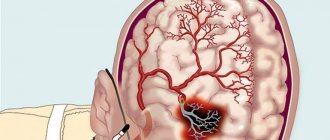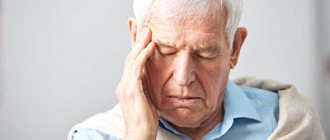Stress can be destructive to our health. The consequences of frequent experiences affect the functioning of all organs and systems.
For example, the skin may become dry and pale, with a yellow tint. The risk of cardiovascular disease also increases significantly. Cystitis, incontinence and much more can occur due to nervousness. And most importantly, stress accelerates the aging process - both external and internal.
Therefore, it is important for modern people to know the signs of stress in order to prevent its consequences or eliminate them as early as possible.
Signs of stress
According to statistics, in Russia women are more susceptible to stress due to their increased emotionality and sensitivity. In 2021, people of all professions experienced strong negative experiences, but especially teachers, entrepreneurs and, of course, doctors.
This year has been difficult for many, so the number of people with chronic stress has increased many times over. At the same time, people began to consider their depressed state as the norm. But even in the most difficult times, it is important not to let the situation get worse and fight back the disease.
Stress changes the entire body, so you should pay attention to different symptoms.
Behavioral signs of stress:
- conflict;
- aggressiveness;
- irritability;
- loss of interest in life, friends, appearance;
- decreased self-esteem;
- suspicion;
- frequent attacks of anger and feelings of helplessness.
Lifestyle changes:
- sleep disturbance;
- the emergence of bad habits;
- increased fatigue;
- decreased performance.
Intellectual traits:
- poor concentration;
- excessive distractibility;
- decrease in attention.
Changes in thinking:
- decreased creativity and memory;
- violation of logic;
- common spelling errors.
Physiological signs:
- frequent headaches;
- cardiopalmus;
- decreased immunity;
- sudden weight loss or, conversely, rapid weight gain;
- deterioration of organ function.
call me back
Types of stress
Conventionally, two types of stress can be distinguished.
- Eustress is “good” stress that does not harm a person. Without it, we would always feel calm, at ease and would not want to achieve anything. We feel eustress when we need to get out of our comfort zone and change something in our life. A simple example: you have undertaken to create a large-scale project that requires a lot of time, effort, intellectual and physical expenditure. It’s difficult for you, you’re nervous, but at the same time you feel that in the end you’ll get a pleasant feeling of pride in yourself, you’ll be praised, and all your efforts will not be in vain. Thus, eustress motivates us not to give up and move forward despite difficulties.
- Distress is harmful and occurs when stress reaches a large scale: it lasts for a long time and has several foci of occurrence. For example, when a person has to cope with several difficult and unpleasant tasks at once: a change of environment, joining the army, lack of sleep, financial losses.
Distress has an extremely negative impact on the human psyche and physiology. He stops being happy, receiving positive emotions and is constantly dissatisfied with his life. Signs of distress include sudden changes in mood, physical weakness, poor performance, and the emergence of negative thoughts.
Types of distress
- Emotional. It is associated with a person experiencing a very strong emotional state (both positive and negative). For example, the birth of a child, a promotion at work, a new trip, or, conversely, a breakup, the death of a loved one.
- Physiological. Directly affects body tissues. It can be caused by climatic (cold, heat, thunderstorm), chemical (deficiency or increased oxygen content in the air) or physical factors (overexertion, injury). These triggers do not go unnoticed. Even after everything has returned to normal, a person experiences apathy, overwork, and constant fatigue for some time.
- Chronic. This is a long-term adaptive reaction of the body to negative influences from the environment. It is the most dangerous type of stress. It can arise from overwork at work, as a result of family quarrels, etc. The consequences can be a change in the size of the brain, its structure and work in general. Leads to various types of diseases (neurosis, heart disease, vascular disease).
- Nervous. Characterized by excessive stress emotionally and physically. A person cannot control his emotions and behaves aggressively and hot-tempered.
Causes
The main reason is the situations that provoke it, they are called stress factors. Considering that the life of a modern person is dynamic and unpredictable, there are a great many reasons. Constant troubles, misunderstandings with loved ones, pressing stress at work, breakdowns of household appliances or cars, and just everyday worries. All this provokes irritation and anxiety.
Sometimes the lack of change, routine and “Groundhog Day” can be the main reason. Each person has their own individual mental characteristics, which for one is an annoying nuisance, for another a cause of stress.
Causes
Main reasons
- conflicts with family and friends;
- unemployment and debt;
- overwork, lack of vacation;
- chronic diseases and excess weight
- dissatisfaction with oneself and one's appearance
Stress develops at three levels: biochemical, psychological and physiological.
When a person finds himself in a stressful situation, his blood glucose level rises, blood pressure rises, the heartbeat becomes more frequent, the deposition of fatty tissue in the subcutaneous tissue increases, sodium is retained, and with it water in the tissues, and potassium, which is necessary for the functioning of the heart and nerves, is eliminated faster than necessary.
Stages of stress
- 1. Anxiety. A person is scared, a signal is sent to the hypothalamus - there is an active production of adrenaline, cortisol, norepinephrine. As a result, the pulse and breathing increase.
- 2. Adaptation. The body is trying to bounce back and normalize its functions. If it doesn’t work out, then it goes to the third stage.
- 3. Exhaustion. The body does not have the strength to fight on its own, so nervous breakdowns, depression, and other diseases develop and manifest themselves. A specialist should be involved in getting out of this state.
How to get out of the darkness
It turns out that the third stage is hypobiosis, caused not so much by the depletion of the other two regulatory systems, but by the activation of the EOS. Nevertheless, the death of the organism after turning on the EOS seems very logical: all functions gradually fade away until they drop to zero. How can you get a person out of the third stage?
Question answer
Is it true that optimists are less likely to get heart disease? – In 1977, at the Institute of Normal Physiology named after P.K. Anokhin in the laboratory of pain physiology under the direction of L.V. Kalyuzhny, my friend Evgeny Golanov and I discovered that opiate blockers are capable of bringing animals out of the so-called irreversible shock.
Shock is an extreme degree of stress in which opioid peptides take over the steering wheel. We didn’t know about it then; the discovery happened quite by accident. We patented it in 1980, but we could not even imagine that two decades later it would be widely used to rescue the Nord-Ost hostages. Today, opiate blockers are used all over the world as anti-shock drugs, and this began with our “children’s” work: Zhenya was a graduate student then, and I was a student.
True, my co-author has been living and working in the USA for almost 30 years; his name is Eugene Golanoff, and today he is one of the world elite of neurophysiologists.
What if there is no one to block the action of opioid peptides? Does the body itself have natural mechanisms for overcoming shock?
– Now all over the world serious attention is being paid to the so-called “small peptides”, also known as “medium molecules”, also known as FaRPs. These are substances that are related to endogenous opioids in origin and have the opposite effect to them.
How is that?
– The first thing that happens under stress is the depletion of the adrenal apparatus. To return to normal, it must be activated somehow. FaRPs perform exactly this function; they act on beta-adrenergic receptors and bring the body out of a state of exhaustion. Probably, natural sanogenesis, that is, self-healing of stress, is associated with them.
I'm a foodaholic. How to stop yourself from eating problems
Read more
Chemistry of stress
The body's response to stress is controlled by the hypothalamus and adrenal glands. When detecting a stressful situation, the body releases certain hormones. Adrenaline and norepinephrine are produced in the adrenal glands at the first sign of danger. It increases during anxiety and shock, causing the heart rate to increase and the pupils to dilate.
Norepinephrine is released in any shock situations. Its action is associated with an increase in blood pressure.
Cortisol levels rise during extreme situations or physical activity. In small doses it does not affect the body. But long-term exposure to this hormone causes damage to the brain, literally shrinking it in size. High amounts of cortisol cause a loss of synaptic connections between neurons and a shrinkage of the prefrontal cortex, which regulates concentration, decision-making, judgment and social interaction.
Prolactin especially affects women whose target organ is the mammary glands. In a situation of severe stress, the release of this hormone begins, as a result of which metabolic problems begin.
Corticoliberin activates the center of fear and anxiety, causes anorexia, and increases blood pressure.
Sign up for a consultation
Neurochemical happiness
But the same endorphins that play such a significant role in stress are commonly called happiness hormones. Is there a contradiction here?
Article on the topic
Goodbye fatigue! How to relieve chronic tension - There is no contradiction, since endorphins released during stress give a person a state of euphoria. People bungee jump, get into parkour and other extreme sports precisely for this reason.
They usually say that this is all done in pursuit of adrenaline.
– God forbid from adrenaline “joy”! Have you seen a mouse on adrenaline? Eyes bulging, fur standing on end, nose bleeding - a pitiful sight. No one would try for such dubious “pleasure”. Extreme athletes perform their stunts not for the sake of adrenaline, but for the sake of endogenous opioid peptides that are produced after the adrenaline phase.
So, the problem of all times and peoples has been solved: activate EOS and you will be happy?
– In life, not everything is so simple. There was a time when dopamine, which, by the way, is not a hormone at all, but a neurotransmitter, claimed the role of the “hormone of happiness.” But studies have shown that a deficiency of dopamine manifests itself in parkinsonism, and an excess leads to schizophrenia. After dopamine was debunked, the vacancy of the “happiness hormone” was filled by serotonin. But not everything is clear with it either: this substance is responsible for an adequate perception of reality, and if something goes wrong with it, pseudohallucinations occur. EOS also has its own specifics.
Opiates (including endogenous ones) break the cycles of normal functioning of the body; they block signals of trouble that arise in the central nervous system. It is not without reason that they say that a drug addict’s happiness lies in ignorance, since he does not notice the discrepancy between what is desired and what is actual. Moreover, a drug addict kills his immune system, since there are opioid receptors even on white blood cells, and drug use leads to a breakdown of this part of the immune system.
Nowadays it is often said that drug addicts develop AIDS due to HIV infection through careless use of syringes. But drug addicts don’t even need HIV to develop immunodeficiency; they boost their immunity by directly using drugs.
Natalya Ladnaya: “Every 7 minutes a new case of HIV infection is registered”
Read more
Stress Prevention
Of course, stress is an integral part of life. But we can learn to manage it and prevent its devastating effects on our health.
For this, it is important to practice prevention. For example:
- Include foods rich in beneficial microelements in your diet. For example, magnesium plays an important role - one of the main helpers in the fight against stress; it reduces cortisol levels. Magnesium is found in nuts (peanuts, almonds, hazelnuts), sesame seeds, seeds, seaweed, dark chocolate and buckwheat.
- Limit your alcohol consumption. It exacerbates the effects of chronic stress and leads to depression.
- Limit caffeine consumption after 15-00. Especially with high levels of cortisol, the stress hormone.
- Contact a psychologist. If you are worried about any fears or emotional experiences, then a consultation with a specialist who will help you understand yourself and guide you on the right path will be very effective.
- Limit the flow of information from the Internet. And it is highly advisable to stop comparing your life with ideal pictures from social networks.
- Normalize sleep. It is important that it lasts 7-8 hours.
- Exercise. It helps increase activity and concentration, improves overall cognitive function.
- Don't burden yourself with many complex tasks. Good time management is the key to preventing stress.
- Try meditation practices. Relaxation techniques provide the opportunity to step back, become aware of what is happening, and choose how to respond to stress.
The most important thing is to monitor your feelings and emotions and not put them in a “distant box.”
Types of people in stressful situations
Each person reacts to sources of stress individually; each phase can last longer or shorter for different people. This depends on a person’s resistance to stress, on his ability to quickly “bend under” the situation and find the right solution to solve the problem.
Experts have found that there are different reactions to stress and have identified 3 types of people:
- those who can withstand stress for a long time
, while being in excellent shape and in an adequate mental state; - those who, when a problem arises, lose their ability to work
, it is difficult for them to find a solution and adapt to new conditions; - those who can work productively and show high results only under stress
, problems “spur them on” and force them to move forward.
Treatment of stress
Do not delay making an appointment with a specialist if you feel that you cannot cope with stress on your own. Based on the patient's complaints, a treatment plan is prescribed.
An approximate treatment regimen looks like this:
- Therapeutic practice with a psychologist. At the moment, there are many psychological techniques that will help you cope with stress and return to normal life. The specialist will choose the one you need based on the patient’s condition and personal characteristics.
- Collection of analyses. Since stress can affect many organs, it is important to identify the problem early.
- Drug therapy. If the stress is not prolonged, then mild sedatives are prescribed that will reduce anxiety and anxiety. In more severe cases, patients are recommended to take tranquilizers and antidepressants.
- Relaxation. Healthy relaxation techniques include breathing techniques, massage and yoga.
Diagnosis and treatment of stress at Expert Clinics
Expert Clinics is a European-level clinic in Moscow, which fundamentally and comprehensively deals with the diagnosis and treatment of stress, as well as its consequences.
First of all, you should make an appointment. Next, based on the patient’s complaints, a treatment plan is prescribed.
It is important to understand that stress is not cured with one or two visits to the doctor. Recovery occurs in stages. It is important that this path becomes conscious for you. And correct and timely diagnosis of stress will be an important step towards a happy life.
Sign up










